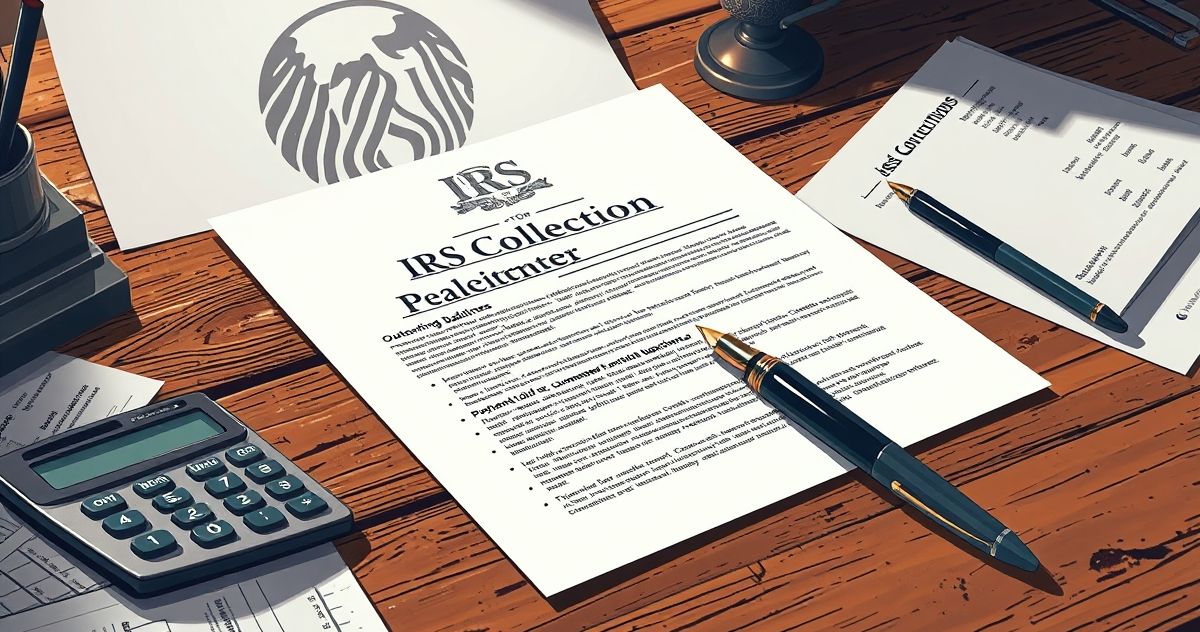What is an IRS Collection Letter?
An IRS Collection Letter is a formal notification issued by the Internal Revenue Service (IRS) to a taxpayer indicating that they have an unpaid tax liability. Such letters are part of the IRS’s collection process to recover owed amounts and assist taxpayers in resolving their outstanding debts. They act as a call to action, prompting recipients to address their tax obligations promptly. The letter not only indicates the amount due but also includes pertinent information regarding payment deadlines and potential consequences if the debt remains unresolved.
The Primary Purpose of an IRS Collection Letter
The primary aim of an IRS Collection Letter is to facilitate the collection of unpaid taxes. These letters emphasize the necessity for taxpayers to settle their dues to avoid escalation of enforcement actions. Furthermore, they serve as a tool to remind taxpayers of their compliance obligations, ensuring they are aware of their standing with the IRS. The communication also provides transparency regarding amounts owed and the taxpayer’s standing, offering an opportunity to address any discrepancies.
Key Features or Components of an IRS Collection Letter
IRS Collection Letters generally consist of several crucial components:
- Amount Due: The letter clearly states the total amount the taxpayer owes, encompassing any interest or penalties accrued.
- Payment Instructions: The communication includes detailed instructions on how to make payments, available payment plans, and deadlines to resolve liabilities.
- Consequence Outline: The document lists potential consequences of non-payment, including additional interest, penalties, property liens, or levies.
- Contact Information: It provides necessary contact details for taxpayer assistance, enabling individuals to seek clarifications or discuss payment arrangements.
- Appeal Instructions: If applicable, it will inform the taxpayer of their rights to appeal or dispute the amounts stated in the letter.
Relevant Filing or Compliance Requirements
Compliance with an IRS Collection Letter typically involves responding to the notice by paying the amount owed or contacting the IRS to discuss alternatives such as payment plans. Adhering to stated deadlines is vital to avoid further penalties. Taxpayers must ensure the accuracy of their tax filings to prevent such situations. Additionally, maintaining records and documentation can assist in resolving disputes more efficiently and prevent future discrepancies.
Penalties or Consequences for Non-compliance
Failing to respond to or resolve an IRS Collection Letter can lead to increasingly severe repercussions. Initially, the IRS may add interest and penalties to the outstanding amount, causing the debt to grow. Over time, the IRS might escalate enforcement actions, which can include wage garnishments, bank account levies, and placing liens on property. Persistent non-compliance increases the likelihood of more aggressive collection methods being employed, complicating the taxpayer’s financial standing further.
Importance of an IRS Collection Letter in Tax Resolution
The IRS Collection Letter plays a significant role in tax resolution. It acts as a preemptive measure by informing taxpayers of their debts, offering a chance to resolve issues before they become unmanageable. This process is essential in maintaining a taxpayer’s financial health, as unresolved tax debts can severely impact credit scores and access to future financial resources. Timely response to IRS Collection Letters ensures taxpayers can manage their debts effectively, potentially avoiding the stress and financial strain associated with aggressive collection techniques. Moreover, actively engaging with the IRS in response to such letters can open opportunities for manageable payment solutions, such as installment agreements or offers in compromise, which are designed to align payment terms with the taxpayer’s financial capacity.
Significance in General Financial Compliance
Achieving compliance through the resolution of issues highlighted by an IRS Collection Letter aids in maintaining overall financial legality and health. It ensures the taxpayer’s financial records are accurate and up-to-date, preventing further issues or audits. Regular review and prompt resolution of such letters aid in sustaining financial order and enhancing the trustworthiness of financial engagements with partners, lenders, or other stakeholders reliant on the individual’s financial stability.
In summary, an IRS Collection Letter is a critical component of the tax administration’s effort to ensure taxpayers meet their obligations, reinforcing the necessity of compliance while providing mechanisms to address and resolve outstanding tax liabilities. Efficient response to these letters not only mitigates immediate risks but also fosters long-term financial compliance and stability.

